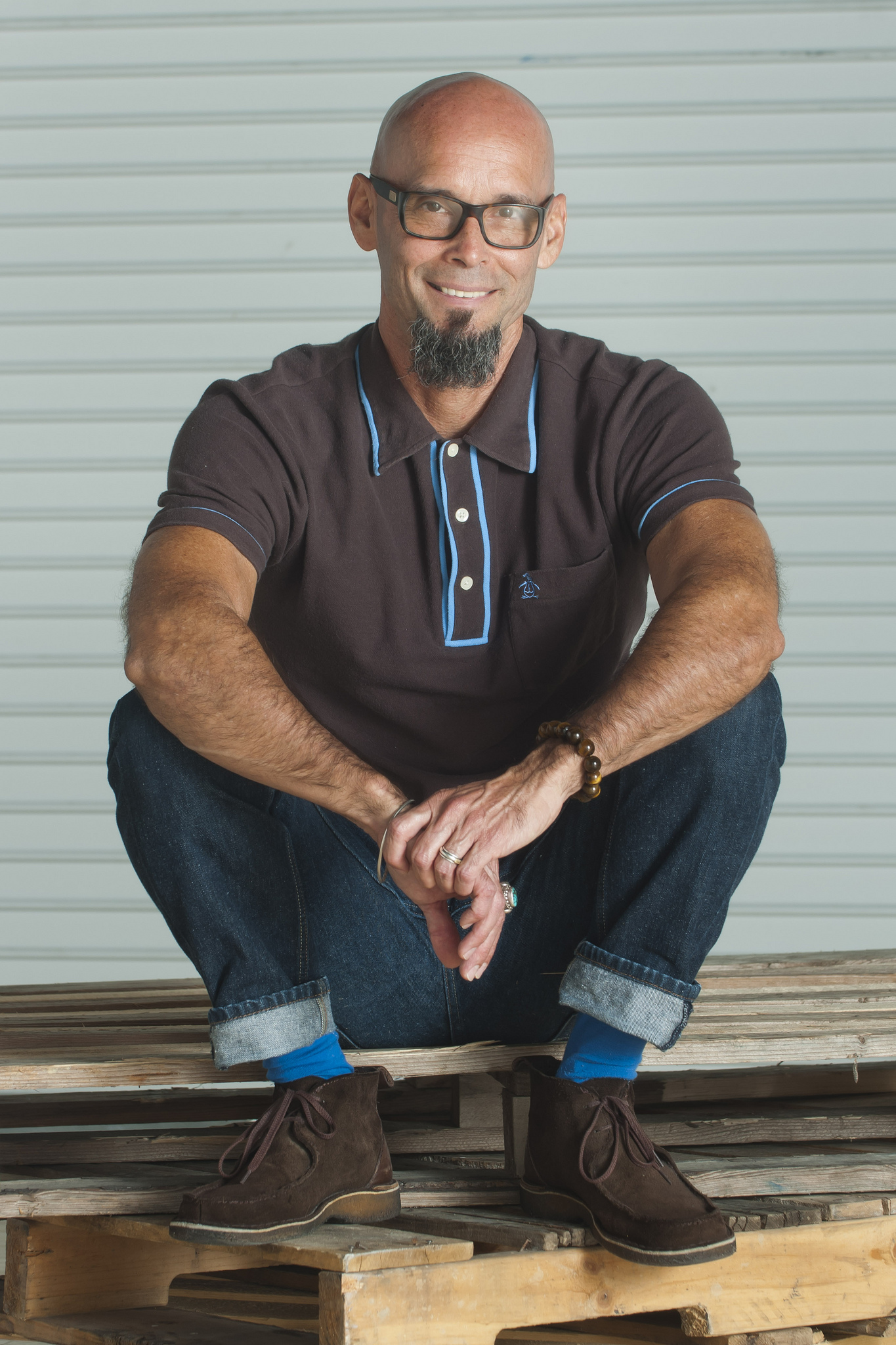
Brothers’ keeper: Teo Castellanos’ family story in 22 voices
Above: Teo Castellanos won a 2013 Knight Arts Challenge grant for “Third Trinity,” a one-man play he wrote that debuts Oct. 10 and is directed by MacArthur Fellow Tarrell McCraney. The two sat down earlier this year to talk about working together and the process of adapting the work for the stage.
Actor, writer and director Teo Castellanos once put a deep slice of true Miami, in all its glorious diversity, promise and miseries, right on stage. Set as a jitney ride through town, his one-man play “NE 2nd Avenue” offered a mirror to a city still becoming.
TEO CASTELLANOS
It was a tour de force.
It turns out that it was just preparation for telling his family’s story and the tale of three brothers on different paths.
Castellanos won a Knight Arts Challenge grant in 2013 to stage “Third Trinity,” a one-man play directed by playwright, actor and MacArthur Fellow Tarell Alvin McCraney. It was commissioned by The Miami Light Project in 2011 and premieres at The Light Box in Miami on Oct. 10-18. Castellanos also won the challenge’s People’s Choice Award for his project.
“I said I’d never do another solo piece again. That was hard work,” says Castellanos, his voice trailing off. Then he adds: “Different challenge.”
Adapted for the stage by Castellanos from his own original screenplay, the play tells the story of three brothers. It begins with a tragedy.
The brothers were actually his cousins. His mother adopted them before he was born when their mother, her sister, was murdered in New York.
“‘NE 2nd Avenue’ was character driven. I did nine characters and each had time to become well defined. Each monologue was about 10 minutes long so there was plenty of time to develop character, mannerisms and a very specific accent. ‘Third Trinity’ is story driven, and there are 22 characters. It’s about my brothers. One was a Puerto Rican nationalist; he passed on, and the other was a drug smuggler and [the play is about] how they had two very different lives — even if they were brothers.”
“I see it as a story of resiliency,” says Castellanos. “It’s a story about two siblings in the same household, in trying conditions, and how one totally overcomes and succeeds and goes to college and moves forward, and the other totally becomes overwhelmed and wrapped up by the circumstances — and how they take very different paths.”
“The beautiful thing about our story is that we did have trying times and difficult circumstances but there was resiliency in all three of us.”
Born in Puerto Rico and raised in Miami, Castellanos was so taken by his brothers’ stories that he didn’t write himself in the screenplay at first.
“How their stories crisscross, how their lives went, it’s pretty amazing,” he says. “I didn’t feel my story was as interesting. If you are going to talk about yourself and use an autobiographic voice, you better have a damn good story to tell,” he says before breaking into a laugh.
“I’ve always thought of ‘Third Trinity’ as a movie. I adapted it for the stage version. It is about my brothers, but there was a gap so I put myself in. Who knows? When the movie is made maybe I won’t be needed and I can take myself out.”
Judging by his work Castellanos seems to never back down from a challenge, but not all his previous productions have been one-man shows.
“Scratch and Burn” (2005), a dance-theater piece about war using the language of hip-hop and references as broad as Butho and Zulu rituals, also commissioned by Miami Light Project, featured Teo Castellanos D-Projects, his contemporary dance-theater company.
“I had never written, directed and worked with dancers,” he says. “It was a whole new experience.”
“Fat Boy” (2012) also a dance-theater piece, examined American values under the light of world hunger and American consumerism. It was co-commissioned by Miami Light Project, Tigertail Productions, 7 Stages and the Hip-Hop Theater Festival.
“Solo work is by far the hardest thing I’ve done as an actor,” he says. “No doubt.”
He says he wouldn’t think of directing himself.
“I trust Tarell … There are very few directors I would trust my work to. And when I see him handling the light cues, the light design, sound, videos and projections, I sit back and say ‘Thank God that I can focus on the set and the characters and the performance.’ That is enough.”
Fernando González is a Miami-based arts & culture writer.
Recent Content
-
Artsarticle ·
-
Artsarticle ·
-
Artsarticle ·

